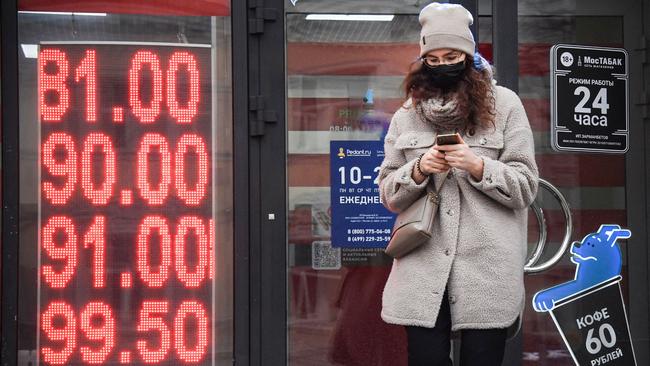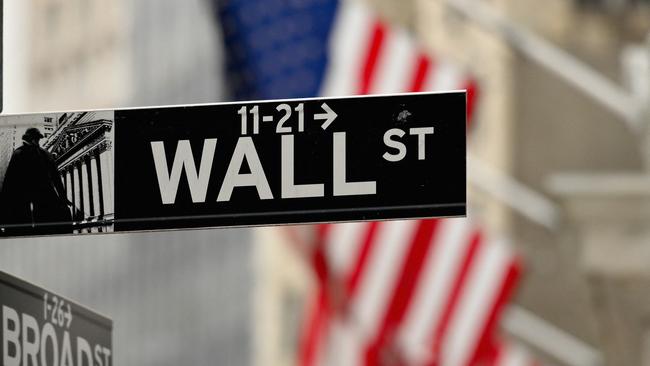Investment tips for shareholders shocked by Russian invasion
Stockmarkets saw the Ukraine war coming, and after an initial plunge they bounced back. Things may get worse, but there are lessons investors should remember.
Opinion
Don't miss out on the headlines from Opinion. Followed categories will be added to My News.
As far as starts to the year go, they don’t get much bumpier for investors than 2022.
In two months we’ve had two 10 per cent corrections in the world’s biggest stockmarket, the US, and a similar seesawing effect in Australia.
Last Thursday’s 3 per cent plunge was the worst one-day fall in 18 months, and we’ve seen oil price spikes following Russia’s invasion of Ukraine – increasing the risk of higher inflation and interest rates.
Losing money on the stockmarket is insignificant compared with the horror and uncertainty currently confronting the Ukrainian people, but financial pain also affects many people.
Panicking and selling out of shares when things get scary has historically proven to be a bad investment move, because people who try to time the market often find themselves selling at the bottom and missing the inevitable rebound.
It’s worth remembering some key pieces of stockmarket investment advice before pushing the panic button.

HISTORY IS A GUIDE
Economists and stockbrokers say while wars shock financial markets, stocks often bounce bank within a few weeks or months.
US and Aussie shares did that immediately following Thursday’s plunge, and in 11 military conflicts since 1979, only two have had sharemarket falls the day following the first bullets and missiles being fired.
Nobody knows where Russia’s invasion will send share prices and investment portfolios. Given it could be Europe’s biggest fight since World War Two, modern financial markets are in uncharted territory.
Stockmarkets were at high levels coming into 2022 after a boom period, so may have further to fall than in previous military conflicts.
Shaw and Partners senior investment adviser Jed Richards says the threat of rising energy costs – Russia is a big oil and gas producer – could damage economies, and says now could be a time for investors to “take some risk off the table”.
AMP head of investment strategy Shane Oliver says historically markets have been an average 15 per cent higher a year after war breaks out, “so the best approach is for investors to stick to an appropriate long-term investment strategy”.
DIVIDENDS DON’T DISAPPEAR
Shares prices are volatile, but dividends paid out by companies are remarkably resilient.
The income yields paid by many Aussie stocks are impressive, and dividends have generally been rebounding from 2020’s Covid collapse.

Aussie dividend yields historically average about 4.5 per cent, way ahead of what you’ll get from bank deposits, plus come with bonus tax credits.
The yields of some of our biggest mining stocks – BHP, Rio Tinto and Fortescue – are well above 7 per cent, and resources companies are unlikely to lose much value in a conflict where demand for commodities remains strong.
OPPORTUNITIES PRESENT
It feels callous to benefit from other people’s pain but that’s a cruel truth of capitalism.
People make money and people lose money, and professional investors profit from looking at the big picture.
Brokers believe oil and gas stocks are obvious beneficiaries if the Russian situation worsens further and its energy exports are banned.
Ukraine is a big food producer, and disruption in Europe may fuel share price growth for agriculture-related stocks.
Global uncertainty is great for the gold price, which is seen as a safe haven when everything else in the world is turned upside down.
More Coverage
Originally published as Investment tips for shareholders shocked by Russian invasion
Read related topics:Russia & Ukraine Conflict





